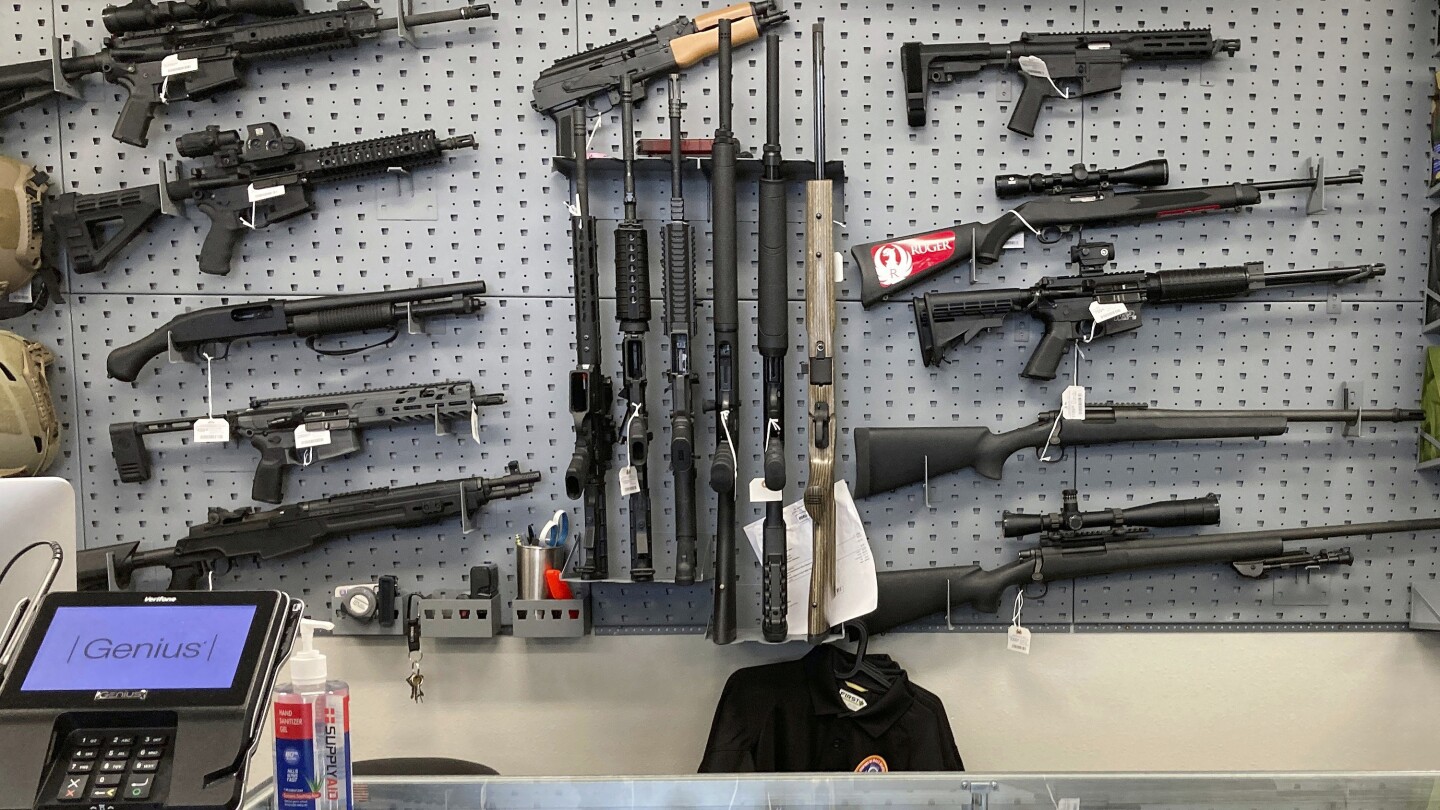A voter-approved Oregon gun control law violates the state constitution, a judge ruled Tuesday, continuing to block it from taking effect and casting fresh doubt over the future of the embattled measure.
The law requires people to undergo a criminal background check and complete a gun safety training course in order to obtain a permit to buy a firearm. It also bans high-capacity magazines.
The plaintiffs in the federal case, which include the Oregon Firearms Federation, have appealed the ruling to the 9th U.S. Circuit Court of Appeals. The case could potentially go all the way to the U.S. Supreme Court.



It is not, no. There are no countries where it's apples-to-apples. Each country is going to have differing gun laws and regulations, so there's no way to make an absolutely perfect comparison.
Having spoken to Finnish gun enthusiasts, you need to go to a range and shoot a certain number of times in a year in order to get permits to buy, but there are a limited number of ranges, and the slots fill up very quickly. But once you have permits, things like silencers are available without issue. It's not significantly harder to get tactical/assault-style rifles than it is to get pistols. Background checks don't seem to be any more significant than the checks that you have to go through in the US. Finns have a strong culture of hunting, as well as shooting Russians, so there's quite a few gun owners in Finland.
Switzerland has conscription, so most people end up having to serve a year or so in the military, and then have the option of keeping their service rifle. Each canton seems to do their own permitting, but in general it's not terribly difficult to get permits. Again, it's not significantly more onerous to get a permit than it is to pass a background check in the US. The Swiss also have a strong culture of competitive shooting. Switzerland in general is pretty monocultural; it's not easy to emigrate to Switzerland.
Both countries also have very strong social safety nets, and are significantly flatter economically; there isn't the same kind of economic gulf between the poor and the wealthy in either country that we see in the US. Both countries have a judicial system that's geared towards reform rather than punishment. Both countries have some form of socialized medicine, so that families aren't going bankrupt because mom has breast cancer, or dad had a car accident. There's far, far less religious extremism in both countries (religious extremism really drives the moralistic attitudes in the US towards crime and poverty).
Conversely, we can look at the UK and Australia to see what happens when you remove firearms, but don't correct social conditions. (England, in particular, has been cutting all social programs.) Violent crime rates–defined as robbery, murder, assault/battery, and forcible rape–are roughly similar in the UK and Australia to the US, although the US has a far higher murder rate overall. Violent crime in the US is more lethal, but the lack of guns doesn't have any effect on the overall violent crime rates. Rates of forcible rape in Australia are, IIRC, rather significantly higher than they are in the US. (A caveat is that you can never do a perfect comparison in crimes between countries, because the way that a crime is defined in the US will be different than it is defined in e.g. Canada. So these are rough comparisons, but essential correct, even if not perfect in all the particulars.)